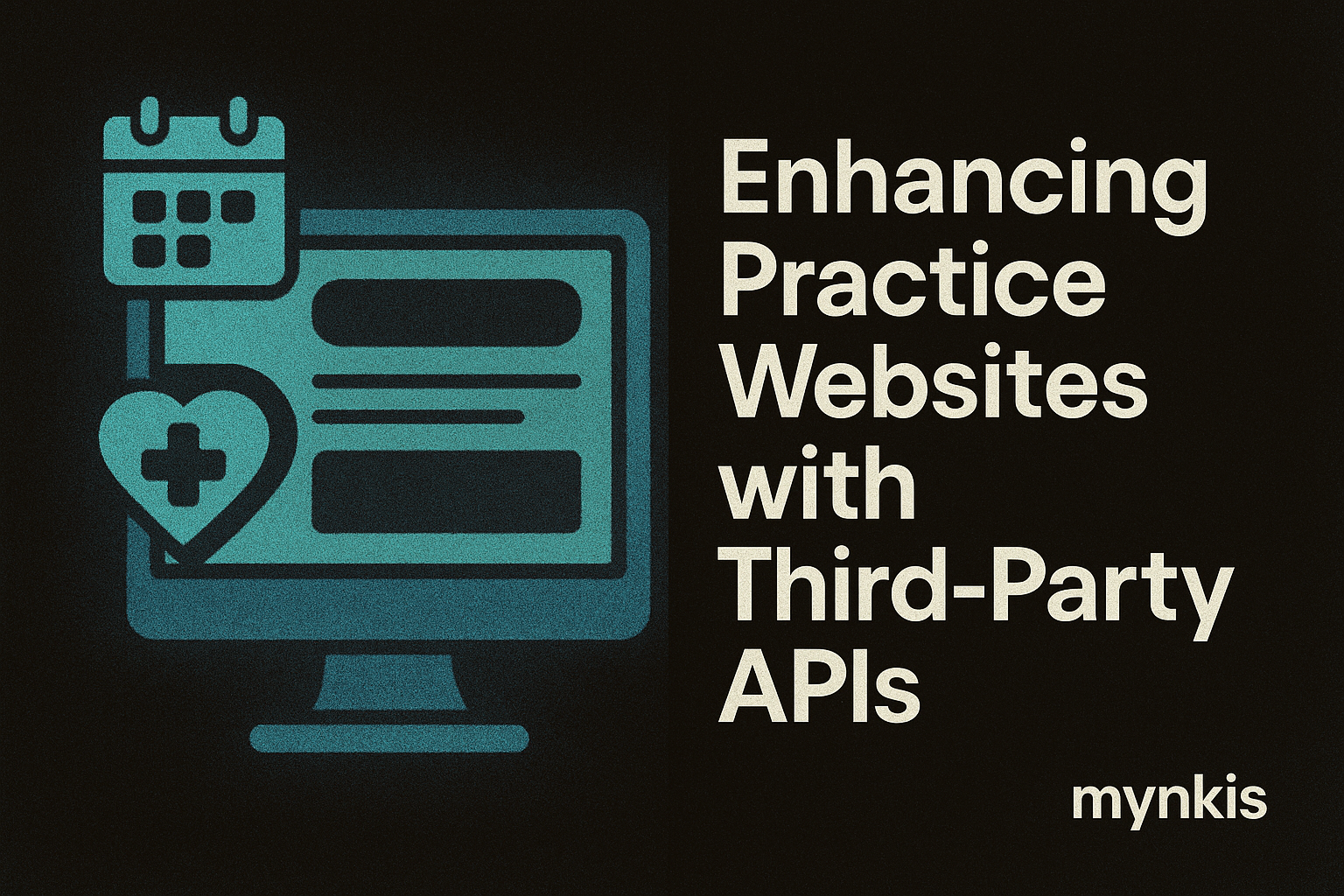Schedule a Demo
In my work with various practices across different industries, I've seen firsthand the transformative impact that integrating third-party APIs can have on a website. Whether you're a healthcare provider, legal firm, or any other service-based business, leveraging these tools can not only streamline your operations but also greatly enhance the user experience for your clients. The secret lies in choosing the right APIs and integrating them seamlessly into your custom software development project.
Let's dive right into the what and why of APIs. Application Programming Interfaces (APIs) are essentially the messengers that allow different software systems to communicate. They are the bridge between your website and other services, enabling functionalities that you might not be able to develop in-house. From payment gateways like Stripe to mapping services like Google Maps, the possibilities are vast and can provide a competitive edge to your practice.
Consider this: a dental clinic in Los Angeles implemented a scheduling API into their website. Not only did it allow their clients to book appointments 24/7, but it also integrated with their internal management system, reducing manual data entry and errors. The result? A noticeable improvement in operational efficiency and client satisfaction. This example underscores the potential of enterprise web solutions when thoughtfully designed with the right integrations.
Selecting the appropriate APIs is crucial for a successful integration. Your choice will depend on your specific needs and the type of practice you run. For instance, if you're a financial advisor, integrating with financial data APIs to provide real-time market information might be incredibly beneficial. On the other hand, a law firm might find value in document management APIs to facilitate case handling and client document access.
But how do you decide which APIs to go with? A good starting point is to evaluate the services that could enhance your clients' experience or streamline your internal processes. Survey your team, maybe even poll your clients, and identify the pain points or areas where automation could significantly improve efficiency. Based on available research, individual results may vary, but one thing is clear: thoughtful selection of APIs can make a world of difference.
Integrating APIs isn't just about picking the right ones; it's also about ensuring they work harmoniously within your existing software framework. This means that your custom software development team needs to consider factors like API authentication, data security, and compatibility with your existing systems. While these might sound like technical jargon to the uninitiated, they're crucial for a seamless experience.
API security is of utmost importance. If you're integrating with APIs that handle sensitive client data—think financial or medical information—ensuring robust security protocols is not optional. In my collaborations with cybersecurity experts, I've learned that a multi-layered approach, including encryption and secure API key management, is essential for maintaining client trust.
Compatibility is another critical consideration. If your current enterprise web solution runs on an older platform, you might find newer APIs challenging to integrate due to differences in programming languages or required software updates. This is where a skilled development team can shine, crafting a bridge between the old and new to ensure a smooth transition.
One of the key goals for any practice is to maximize the return on investment (ROI) for their technological investments. Integrating the right APIs can directly contribute to this goal. Whether it's through enhancing user engagement, reducing operational costs, or opening new revenue streams, APIs can be a powerful tool in your arsenal.
Let's talk about user engagement for a moment. By integrating social media APIs, your website can automatically update with content from your business's social channels, keeping the site fresh and engaging without extra effort from your team. Such dynamic content not only improves SEO but also helps in attracting and retaining clients.
Revenue streams can also be diversified through smart API use. A physical therapy practice, for example, might integrate with a fitness tracking API to provide personalized workout plans to their clients. This added value can be monetized, creating a new source of income while simultaneously improving client outcomes.
I've had the privilege of observing numerous practices succeed through strategic API integration. Take a mental health clinic in New York, for instance. They integrated with a scheduling API and a telehealth API, which allowed them to offer both in-person and remote therapy sessions. This integration significantly increased their capacity to serve clients without the need for physical expansion.
Or consider a chiropractic office in San Diego. They used an appointment reminder API combined with SMS integration to reduce no-shows—a common challenge in many healthcare settings. Their no-show rates dropped by over 30%, directly impacting their bottom line and client satisfaction.
In an industry where technological advancements happen at breakneck speed, future-proofing your practice is not just a luxury; it's a necessity. By incorporating APIs into your custom software development strategy, you position your practice to adapt quickly to new trends and technologies.
Moreover, APIs allow for scalability. As your practice grows, your needs will evolve. A payment processing API, for instance, can handle increased transaction volumes without requiring a complete overhaul of your system. This flexibility is invaluable in planning for long-term growth.
Finally, keeping up with API trends ensures you're always on the cutting edge. Tech giants and startups alike are constantly developing new APIs. By staying informed and selectively integrating those that align with your practice's goals, you can keep your services competitive and relevant.
